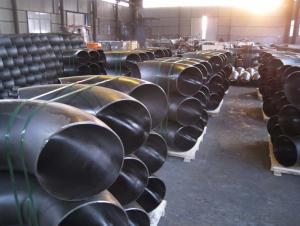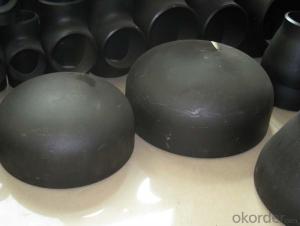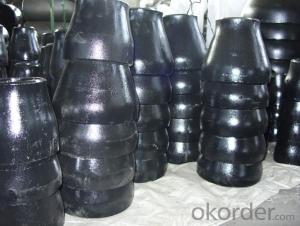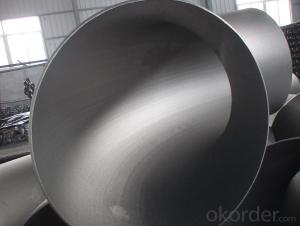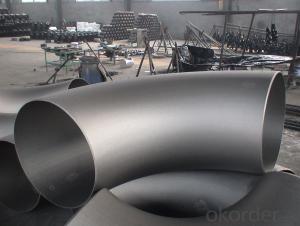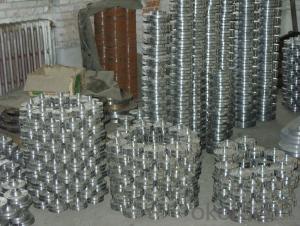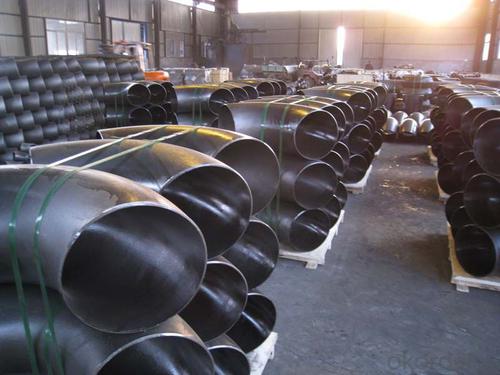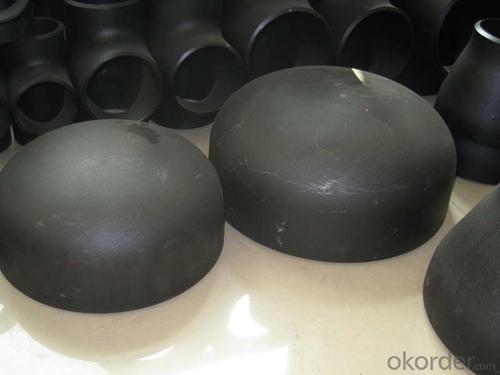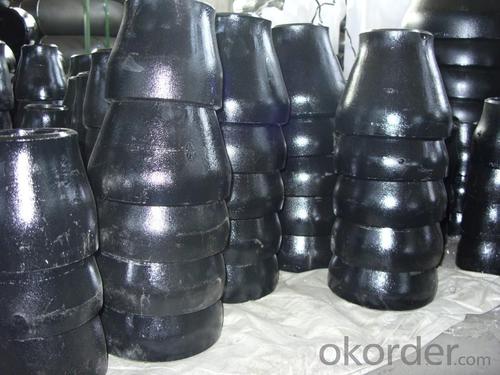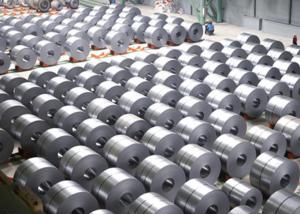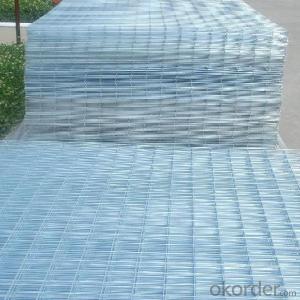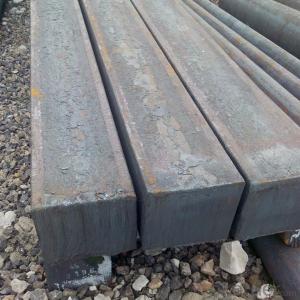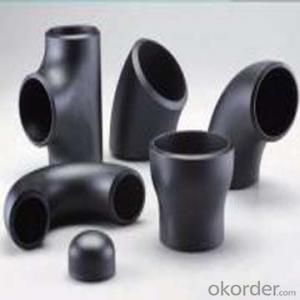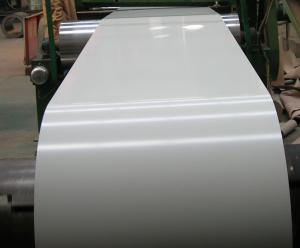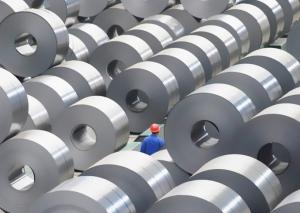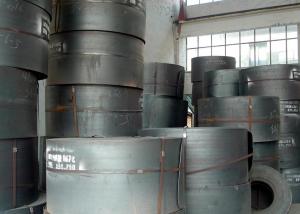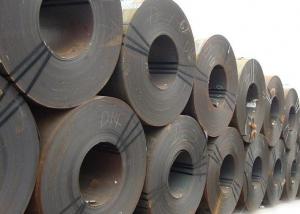Carbon Steel Pipe Fittings ASTM A234 BEND TEE FLANGE
- Loading Port:
- China Main Port
- Payment Terms:
- TT OR LC
- Min Order Qty:
- -
- Supply Capability:
- -
OKorder Service Pledge
OKorder Financial Service
You Might Also Like
Specifications
pipe fitting elbow
Certificate:ISO:9001-2000
New material,completely meet asme and din standard
Best price
1. type: AISI ASTM A234 WPB BW Con Elbow
2. Size: 1/2"-48"(1/2"-24"is seamless and 26"-48"is welded)
3. Wall thickness: sch10-160, STD, XS, XXS
4. Material: A234WPB, A420WPL6, A420WP5, WP11, WP12, WP22, etc
5. Welding line: seamless
6. Angle of bend: 30, 45, 90, 180degree
7. Bending radius: SR, LR
8. Standard: ANSI B16.9, JIS, SB, DIN, GB
9. Surface treatment: black paint, vanis paint, black rust-proof oil,
transparent oil, hot galvanizing
10. Application: petroleum, electricity, chemical, natural gas, metallurgy,construction,
shipbuilding and other fields because of its high pressure, high temperature, etc
11. connection: welding
12. technics:forged
13.Certificate:ISO9001 - 2000, CE, SGS, etc.
14. packaging: wooden case, pallet, container or in accordance with the
requirement of customers
15. Principle: quality fist, customer first, credit first
16. payment: L/C T/T
17. delivery time: 7-25 days after payments
18. Notes: the bevel can be made in accordance with the special requirements
of the customers
19. Others: we can also produce the products according to the requirements
of the customers
The main production:
1. PIPE FITTINGS: elbows, tees, bends, reducers, cap, flanges and sockets etc.
2. PIPE: bult welded pipes, seamless pipes, threaded pipes, etc.
We sincerely welcom customers at home and abroad to visit us and seek common development.
- Q: What are the different types of steel sections?
- There are several different types of steel sections, including I-beams, H-beams, U-channels, angles, and T-sections. Each type of section has its own unique shape and structural properties, making them suitable for various applications in construction and engineering.
- Q: What are the common uses of steel in the food processing industry?
- Steel is commonly used in the food processing industry for various purposes, including the construction of machinery and equipment, storage tanks, and food preparation surfaces. It is preferred due to its strength, durability, and resistance to corrosion, making it ideal for ensuring food safety and maintaining hygiene standards.
- Q: How is steel sheet metal coated for corrosion protection?
- Steel sheet metal is coated for corrosion protection through a process called galvanization. In this process, the steel is dipped into a bath of molten zinc or electroplated with zinc, creating a protective layer that acts as a barrier against corrosion. This zinc coating, also known as galvanized coating, provides excellent resistance to rust and corrosion, ensuring the longevity and durability of the steel sheet metal.
- Q: What are the different types of steel beams and their applications?
- There are several types of steel beams used in construction and their applications vary based on their shape and properties. Some common types include I-beams, H-beams, and C-beams. I-beams are commonly used in structural applications, such as for supporting heavy loads and spanning long distances. H-beams are often used in residential and commercial construction for their strength and versatility. C-beams, also known as channel beams, are commonly used in applications where lightweight structural support is needed, such as in the construction of bridges or mezzanines. Overall, the choice of steel beam depends on the specific requirements of the project and the load-bearing capacity needed.
- Q: How is steel used in the production of defense equipment?
- Steel is used extensively in the production of defense equipment due to its strength, durability, and ability to withstand high impact and extreme conditions. It is used to manufacture various components such as armor plates, vehicle frames, weapon systems, and ammunition. The use of steel ensures that defense equipment can withstand the rigors of combat and provide necessary protection and performance for military personnel.
- Q: How are steel products used in the manufacturing of machinery?
- Steel products are used extensively in the manufacturing of machinery due to their strength, durability, and versatility. They are commonly used to construct machine frames, gears, shafts, and other components that require high strength and resistance to wear and tear. Additionally, steel is often utilized in the manufacturing of molds and dies, which are essential for shaping and forming various machine parts.
- Q: What are the advantages of using steel in roofing materials?
- There are several advantages to using steel in roofing materials. Firstly, steel is known for its durability and strength, making it highly resistant to harsh weather conditions such as extreme temperatures, heavy rain, snow, and strong winds. This durability ensures that steel roofs have a longer lifespan compared to other roofing materials, reducing the need for frequent repairs or replacements. Additionally, steel roofs are fire-resistant, providing an extra layer of safety to the building. Steel is also lightweight, which makes it easier and cheaper to transport and install. Moreover, steel roofing materials are available in a variety of colors and styles, allowing for customization to match the aesthetic preferences of the building owner. Lastly, steel is an environmentally friendly choice as it is recyclable, reducing the impact on the environment and promoting sustainability. Overall, the advantages of using steel in roofing materials make it a popular and practical choice for many buildings.
- Q: How does steel compare to other materials like aluminum or wood?
- Steel is generally stronger and more durable than both aluminum and wood. It has a higher tensile strength, making it better suited for structural applications. Steel is also more resistant to fire, pests, and rotting compared to wood. On the other hand, aluminum is lighter and more corrosion-resistant than steel, making it preferable for certain applications like aerospace or marine industries. Ultimately, the choice between steel, aluminum, or wood depends on the specific requirements and characteristics needed for a particular project.
- Q: What are the common types of steel products used in the cosmetics and beauty industry?
- The common types of steel products used in the cosmetics and beauty industry include stainless steel tweezers, scissors, makeup brushes, nail clippers, and eyelash curlers.
- Q: How is steel used in the fabrication of bridges?
- Steel is commonly used in the fabrication of bridges due to its high strength and durability. It is used to construct the main load-bearing elements of the bridge, such as beams, girders, and trusses. Steel's ability to withstand heavy loads makes it an ideal material for bridge construction. Additionally, steel can be easily fabricated and welded, allowing for efficient construction and customization of bridge designs.
Send your message to us
Carbon Steel Pipe Fittings ASTM A234 BEND TEE FLANGE
- Loading Port:
- China Main Port
- Payment Terms:
- TT OR LC
- Min Order Qty:
- -
- Supply Capability:
- -
OKorder Service Pledge
OKorder Financial Service
Similar products
Hot products
Hot Searches
Related keywords
